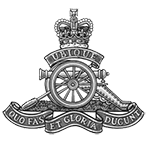 National Service – Notes and Comment
National Service – Notes and Comment
Introduction
These National Service notes and comments will provide context to the experience of National Service by providing some background to military life and conduct as well as insight to its social implications. I have tried to cover those aspects that have relevance. There are, of course, both positive and negative aspects to National Service. One useful guidepost in considering National Service is that the conscript was never all that far from and did return to civilian life. National Service was an interlude and not a chosen career. But in that time the rule of military custom and practice, conduct and discipline prevailed.
Today few can have personal knowledge of what serving in the British Army was like in the 1950s (over 60 years ago) or of the social life of those years. It helps too to have some awareness of the history of those times. How those times were different is illustrated by the fact that at the time I would not need to state that National Service only applied to males.
1. Numbers
Between 150,000 and 170,000 young men were conscripted into the Armed Forces in Britain each year; e.g., in the year 1953 the actual intake was 154,064. The Army took 113,611, the RAF 36,909 and the Navy 3,544.
2. Personnel Selection
On registration prior to conscription, the conscript had the opportunity to express a preference for a particular service, and within it a particular arm. The Forces maximized its benefit from conscripts by attempting to put square pegs into square holes to the extent possible and probably generally succeeding. However, by the very nature of military duty, many of the duties required of the soldier, airman or sailor often had little relation to a conscript’s prior occupation. As far as the military was concerned, everyone had an aptitude for basic soldiering. Or if they hadn’t it, could be drilled into them.
If a conscript had a useful occupation the Forces generally made use of it, for clearly it lessened the training burden, and it meant some conscripts could continue to follow their vocation. Cooks are an example of this, a cook before conscription, you would be a cook after. A printer is perhaps a good counter example. Conscripted as a printer, your assigned duties would not utilize printing skills for there was little or no opportunity. On the larger question as to whether in course of National Service the forces developed skills useful to a conscript on their return to civilian life is another matter but it could and did apply in some cases but not all.
.

 National Service – Notes and Comment
National Service – Notes and Comment
Recent Comments